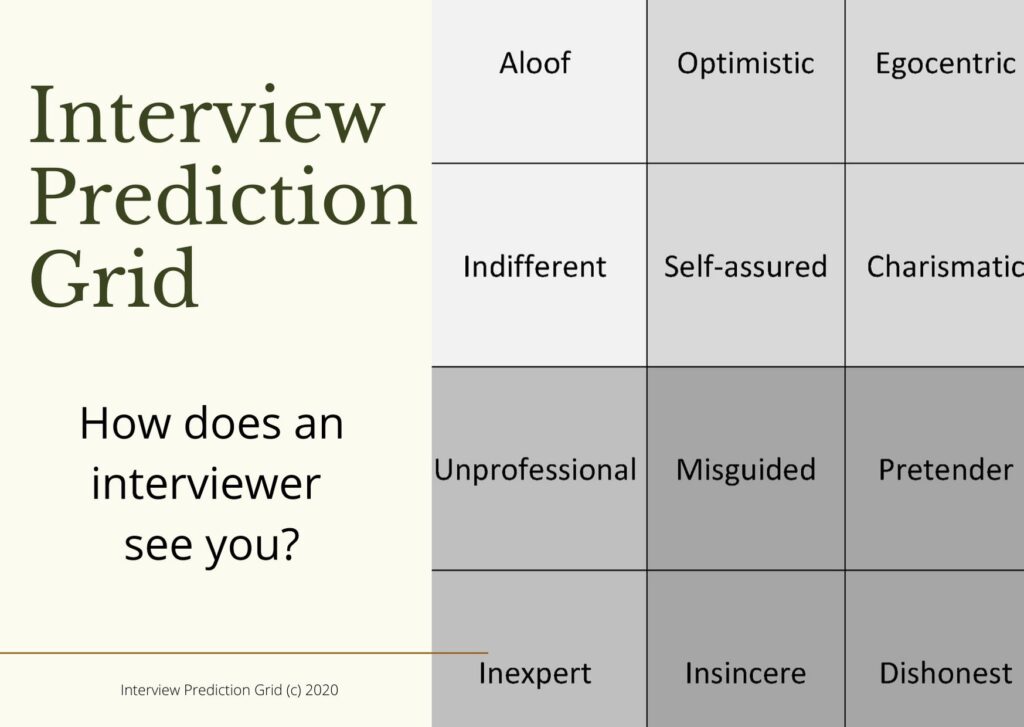The interview perception, formed at the interview start, creates that all important ‘first impression’ which acts as a ‘selection filter.’ The interviewer’s involuntary opinion is filled with errors, prejudices and stereotypes. This automatic thinking comes from assumptions based on the interviewers own experiences, values and beliefs.
If, for example, you believe that an interviewee who is late for an interview will be a terrible worker, you will act from this viewpoint rather than challenge the status quo.
In psychology they refer to an involuntary opinion based on experience as a ‘schema.’
Once you have created a mental structure (schema) even if the concept is incorrect (not all late applicants will be terrible workers – their car may have broken down) the schema creates an effortless pathway from a cause to effect (lateness = bad worker).
In life these schema’s or short-cuts are very useful, as they help to organise and interpret vast amounts of information, but when making expensive hiring decisions based on projected job performance, an instantaneous snap-judgment formed by intuition, not facts, is rarely helpful.
Any schema, positive or negative, can affect the interviewers judgement of the interviewee. This is because schemas influence what information is noticed and remembered; if the interviewer believes that a late candidate = poor performance, the interviewer, subconsciously, will search for evidence to reinforce this belief.
Imagine in a job interview where a candidate, who has been judged for being late, is asked a question. Before answering they hesitate, and then detail a story relating to the criteria referenced in the interview question. The answer highlights several key strengths and skills but also highlights one weakness or area of development. The schema, in this example: late candidate = poor performance, creates a funnel where the interviewer, without conscious awareness, filters the ‘hesitation’ as a sign of a lack of industry knowledge and focuses on the one weakness/area of development, instead of their strengths.
Now, imagine the same scenario but this time the same interviewee had arrived early (their car didn’t break down) activating a different schema (early arrival = high work ethic) this time the same interviewer positively filters the ‘hesitation’ as a sign that the applicant considers questions before replying, and focuses on the interviewees strengths and skills, not their one weakness/area of development.
A single trait, such as lateness or being obese, is enough to become the main emphasis for the judgment of an applicant.
Interview impression formation is a process where different pieces of information are combined, instantaneously, to create a summary impression, even when the information is irrelevant to the job role.
Several experiments show how stereotypes affect the recruitment process. In one example, two identical application forms were sent to organisations recruiting administrators. The only difference was the attached photograph sent with each application; one displayed a ‘average’ weight individual and the second, an ‘overweight’ applicant. The research showed how an ‘overweight’ applicant was less likely to receive an interview offer than an ‘average’ weight candidate even when both applicants had the same experience, skill set and qualifications (the experiment used the same CVs for both the average and overweight applicants)

Job Interview Advice








